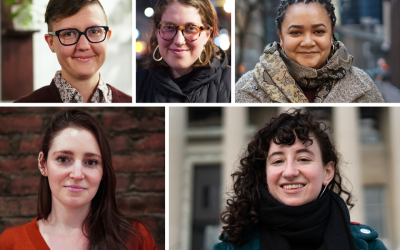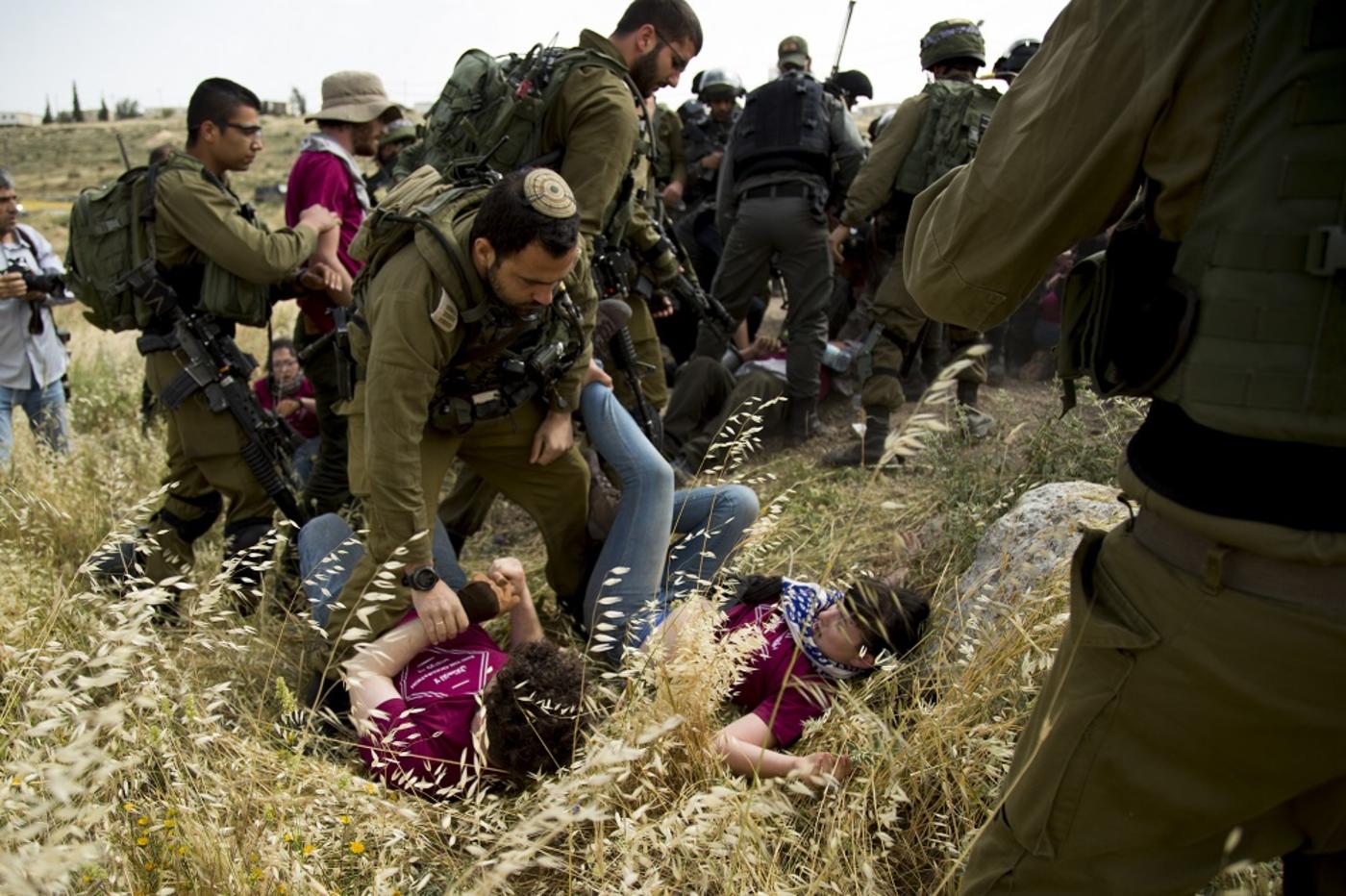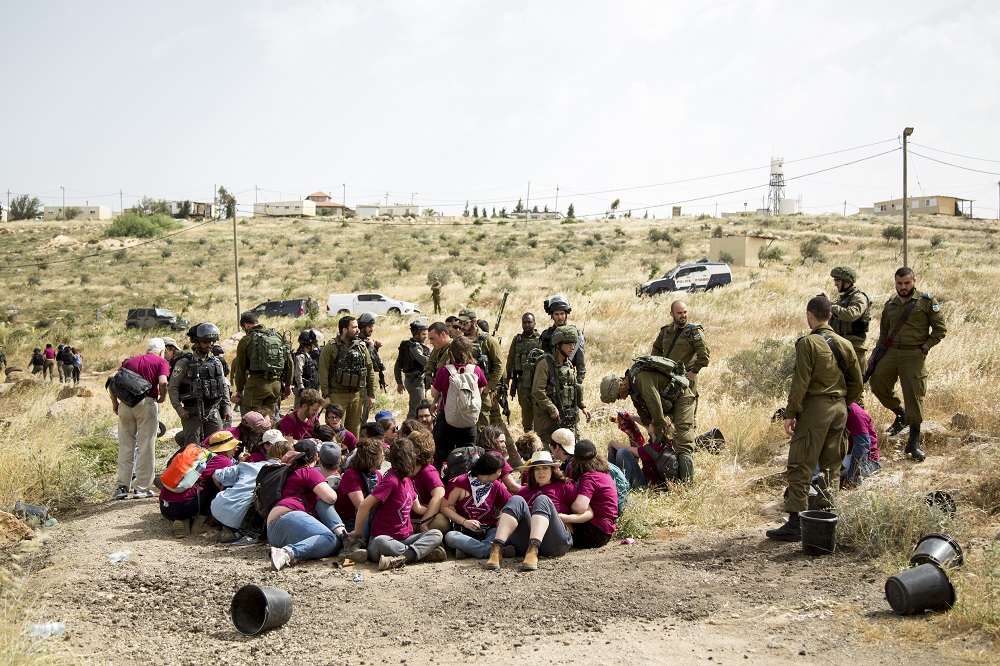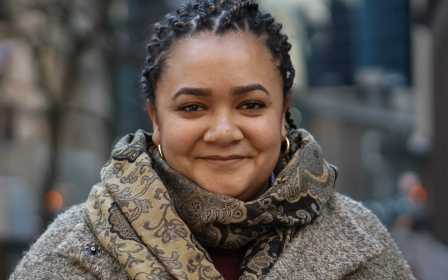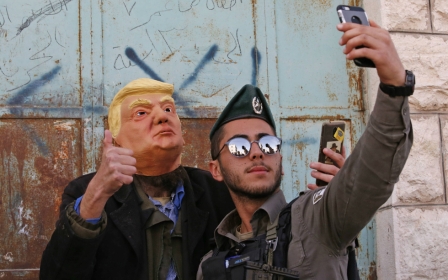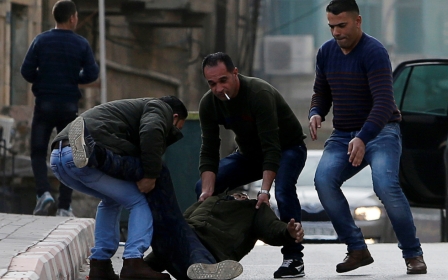Jewish-American activists beaten and detained by Israeli soldiers in West Bank
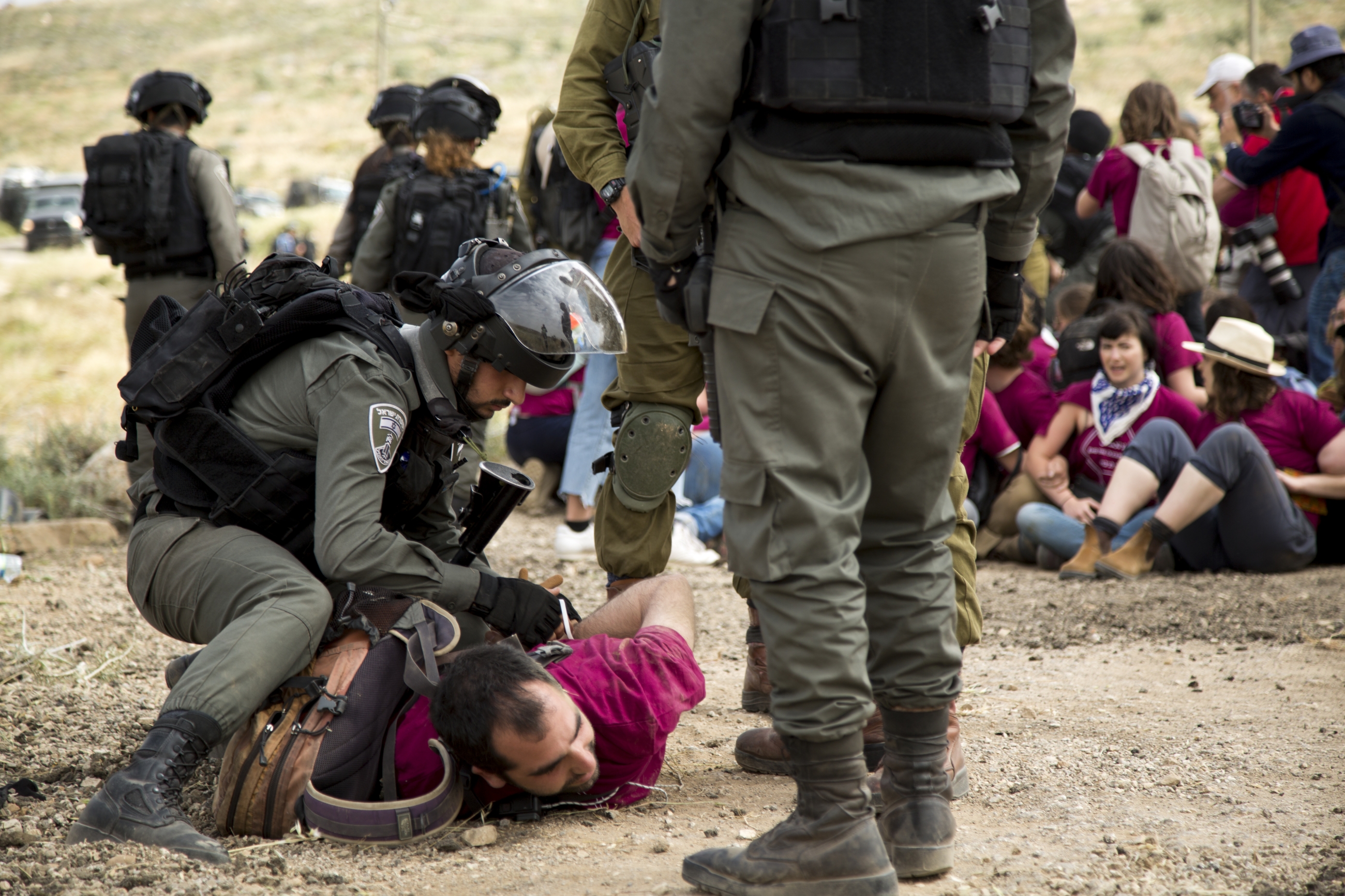
Several Jewish-American activists were beaten and forcefully detained by the Israeli army alongside Palestinian and Israeli activists on Friday morning while working to repair a road linking Palestinian villages in the South Hebron Hills.
Those forced to the ground and dragged into military vehicles included several who appeared to be rabbis and several elderly members of the group.
The activists were part of a delegation of 42 Jews from the US and Canada who are on a two-week tour of the West Bank organised by the US-based Center for Jewish Nonviolence (CJNV) to promote Jewish and Palestinian co-existence and to resist the ongoing Israeli military occupation.
On Friday morning, the group was taking part in a road rehabilitation project alongside Palestinian activists and members of local village councils, and activists from All That's left, an Israeli anti-occupation campaign group.
Almost 100 activists dressed in matching maroon shirts with "End the occupation" written in Arabic, English and Hebrew, were taking part in the activity, which involved filling in trenches and breaking up large stones that had rendered the main road linking 16 villages, an unsurfaced gravel track, virtually unusable.
After less than an hour, Israeli military and border control agents arrived on the scene, encircling the group and blocking entry and exist to the road.
The military gave the activists a 10-minute notice, notifying them that the road they were working on was now a closed military zone and they must leave or else be arrested.
As the activists continued to work after the 10-minute mark, soldiers ran down the hill, targeting the Palestinian activists first.
Sound grenades
The closest group of international allies immediately formed a circle, locking arms to protect the targeted Palestinians, chanting "Diaspora Jews say end the occupation".
Soldiers then started grabbing activists by their arms, legs and clothes, attempting to pull them away from the huddled circle.
Two sound grenades were also thrown towards the group in an effort to make them disperse.
The violence lasted for about 30 minutes, resulting in about 10 Jews, three Palestinians and two journalists being grabbed and dragged along the rocky ground and held in military vehicles.
Middle East Eye understands that those detained were arrested and taken to Kirat Arba, a settlement near Hebron. They were released later that day and ordered to avoid the Hebron area for 15 days.
After the confrontation ended, the remaining activists stood up and continued to work on the road, and were allowed to do so by the military.
The activists later linked arms and began marching towards the military vehicles in an attempt to demand the release of their comrades. The military immediately advanced, pushing the group back with multiple sound grenades and demanding all journalists to leave.
'I thought I was suffocating'
Aaron Goldstein, 26 from California, told MEE he was placed in a choke hold and pinned to the ground.
"I was not afraid for my life, but I was in pain," said Goldstein, who was left with bloodshot eyes. "I thought I was suffocating.
"It seemed like the strategy was, basically, grab the Palestinians, arrest them, take a few diaspora Jews for good measure, then rough everybody else up.
"Thinking about what we are doing here," he continued, "we're filling some holes in the road so Palestinians have slightly better access to their land and within a minute, extreme physical violence was happening."
JVP organiser Ashley Bohrer told MEE that one of the CJNV delegation's main aims during its visit was community learning.
Over the last two days the delegation visited the villages of Susiya and Um al Kheir, "just to listen to the stories of our partners and to share a meal," said Bohrer.
Both villages are surrounded by settlements in Israeli military-controlled Area C of the West Bank and residents face the threat of having their homes demolished.
Israeli authorities had demolished multiple homes and cattle pens even during the delegation's visit, Bohrer said.
"We were just there to listen to the community," Bohrer continued, "but the fact is that life for Palestinians in Area C is incredibly unpredictable, meaning the army can come at any point."
MEE has reached out to the Israeli authorities for comment. MEE also tried to speak to Israeli soldiers at the scene but did not get a response.
Middle East Eye delivers independent and unrivalled coverage and analysis of the Middle East, North Africa and beyond. To learn more about republishing this content and the associated fees, please fill out this form. More about MEE can be found here.


